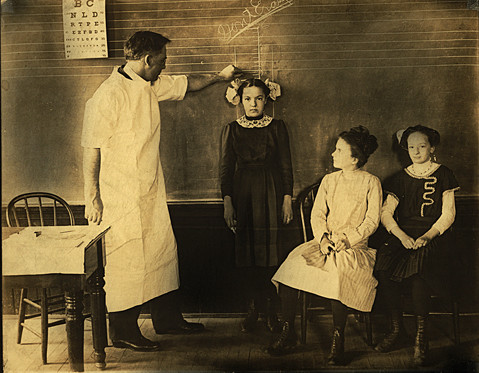I’m not a geneticist, but I doubt successful, educated parents are necessarily more likely to have preternaturally clever children than their poorer counterparts, as is argued in a new Economist article about the role of education in America’s spiraling wealth inequality. Of course, monetary resources can help provide a child every chance to realize his or her abilities, ensuring opportunities often denied to those from families of lesser material means. That, rather than genes, is the main threat to meritocracy. An excerpt:
Intellectual capital drives the knowledge economy, so those who have lots of it get a fat slice of the pie. And it is increasingly heritable. Far more than in previous generations, clever, successful men marry clever, successful women. Such “assortative mating” increases inequality by 25%, by one estimate, since two-degree households typically enjoy two large incomes. Power couples conceive bright children and bring them up in stable homes—only 9% of college-educated mothers who give birth each year are unmarried, compared with 61% of high-school dropouts. They stimulate them relentlessly: children of professionals hear 32m more words by the age of four than those of parents on welfare. They move to pricey neighbourhoods with good schools, spend a packet on flute lessons and pull strings to get junior into a top-notch college.
The universities that mould the American elite seek out talented recruits from all backgrounds, and clever poor children who make it to the Ivy League may have their fees waived entirely. But middle-class students have to rack up huge debts to attend college, especially if they want a post-graduate degree, which many desirable jobs now require. The link between parental income and a child’s academic success has grown stronger, as clever people become richer and splash out on their daughter’s Mandarin tutor, and education matters more than it used to, because the demand for brainpower has soared. A young college graduate earns 63% more than a high-school graduate if both work full-time—and the high-school graduate is much less likely to work at all. For those at the top of the pile, moving straight from the best universities into the best jobs, the potential rewards are greater than they have ever been.
None of this is peculiar to America, but the trend is most visible there. This is partly because the gap between rich and poor is bigger than anywhere else in the rich world—a problem Barack Obama alluded to repeatedly in his state-of-the-union address on January 20th (see article). It is also because its education system favours the well-off more than anywhere else in the rich world.•

